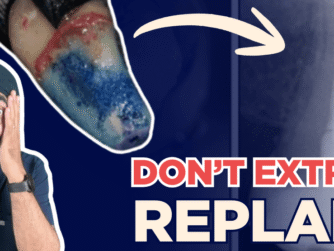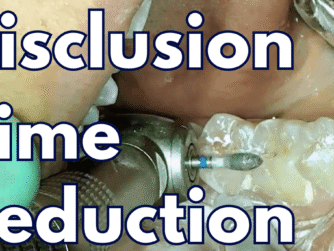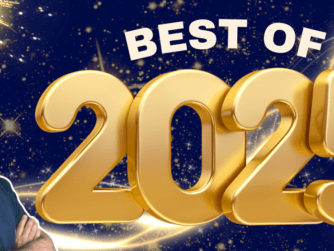Podcast: Play in new window | Download (Duration: 53:45 — 74.7MB)
Subscribe: RSS
Is Work-Life Balance a Myth?
How do you find the right balance between your professional responsibilities and personal life?
Can you truly have it all…without sacrificing your health or family time?
In this episode, Jaz and Emma Hutchison, ‘the Protrusive Student’, dive into the real challenges of balancing parenthood, clinical dentistry, and LIFE! Jaz shares his strategies for managing these demands, revealing that while perfect balance might not exist, navigating life’s seasons with intention can make all the difference.
If you’ve ever struggled with finding your own balance, this episode is packed with key takeaways for dentists at every stage of their careers.
Need to Read it? Check out the Full Episode Transcript below!
Highlights of this episode:
- 03:34 Emma’s New Year Reflections and Study Habits
- 12:20 Balancing Family, Work, and Personal Time
- 19:50 The Importance of Planning and Support Systems
- 23:16 Recognizing Opportunities and Setting Boundaries
- 28:15 Understanding Circle of Concern and Influence
- 30:24 Eat That Frog: Tackling Difficult Tasks First
- 31:02 Burnout in Dentistry: Real Experiences
- 39:51 The Importance of Mentorship
- 41:07 Just in Time Learning
- 44:03 Decision Making and Confidence
- 49:15 Effective Time Management Strategies
- 51:16 Final Thoughts and Takeaways
Key Takeaways:
- Preparation and good mental health are crucial for success during exam periods.
- Internalizing knowledge helps in better understanding and retention.
- Finding time for hobbies and self-care is essential for well-being.
- Planning and prioritizing tasks can lead to more effective study habits.
- Support systems play a vital role in managing stress.
- You can achieve a lot by focusing on your big priorities.
- Eat That Frog: tackle difficult tasks first.
- Burnout is a real risk for dentists.
- Finding a mentor is extremely beneficial for career growth.
- Just-in-time learning is more effective than just-in-case learning.
This episode is not eligible for CPD/CE points, but never fear, there are hundreds of hours of CPD waiting for you on the Ultimate Education Plan, including Premium clinical workthroughs and Masterclasses.
If you enjoyed this episode, be sure to watch Stress in Dentistry 2024 – Life Changing Decisions – IC048







